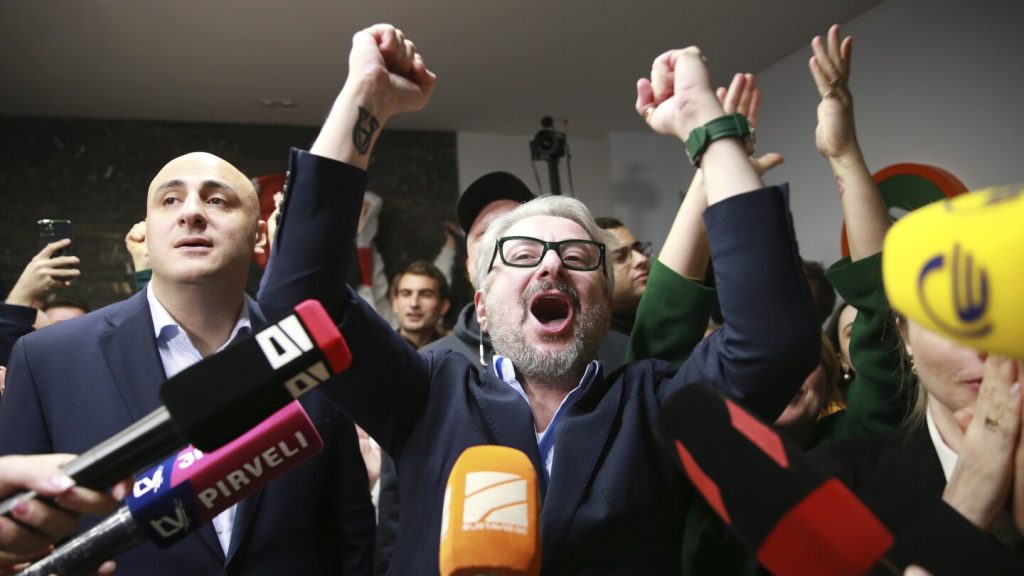Georgia’s opposition is disputing the results of the recent election, claiming that the ruling party, Georgian Dream, led the vote. The outcome of this election is crucial as it could determine whether the country moves closer to the West or back towards Russia. Initial figures show Georgian Dream winning 52.99% of the vote, with turnout being the highest since the party was first elected in 2012. However, opposition groups have expressed their refusal to accept the results, declaring victory shortly after the polls closed.
If Georgian Dream’s win is confirmed, they will hold a parliamentary majority, raising concerns about the country’s EU membership bid. The ruling party has been criticized for adopting laws that limit freedom of speech, similar to those used in Russia. The opposition believes that the election results do not reflect the will of the Georgian people and have vowed to fight to reclaim their European future. International observers reported multiple violations during the election, including intimidation tactics and irregularities at polling stations.
Bidzina Ivanishvili, the founder of Georgian Dream, claimed victory soon after the polls closed and expressed pride in his party’s success. However, opposition leader Tina Bokuchava accused the Central Election Commission of carrying out Ivanishvili’s agenda and stealing the victory from the Georgian people. The opposition remains steadfast in their refusal to accept the results and is determined to challenge the outcome of the election. Many Georgians see this election as a critical moment in the country’s history, with President Salome Zourabichvili describing it as an “existential election.”
Reports of attacks on opposition party headquarters, as well as voter intimidation and irregularities, have raised concerns about the fairness of the election. One video circulating on social media showed a man stuffing ballots into a box at a polling station, prompting investigations by the Interior Ministry. Georgian Dream’s plans to ban opposition parties if they win further fuel fears of authoritarianism within the country. The opposition parties have pledged to carry out reforms required by the EU for membership, despite setbacks caused by the ruling party’s actions.
The majority of Georgians support joining the EU, but concerns have been raised about the ruling party’s commitment to meeting the requirements for membership. Brussels has put Georgia’s EU bid on hold indefinitely following the passing of laws that crackdown on freedom of speech. Many fear that Georgian Dream’s policies are moving the country away from EU integration and towards closer ties with Russia. The election has been described as a choice between a government that serves the people and one that may prioritize foreign interests over national needs. The opposition parties remain hopeful that they can secure enough votes to form a government and steer the country towards a more stable and prosperous future.


